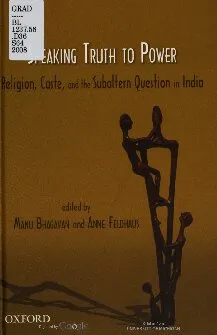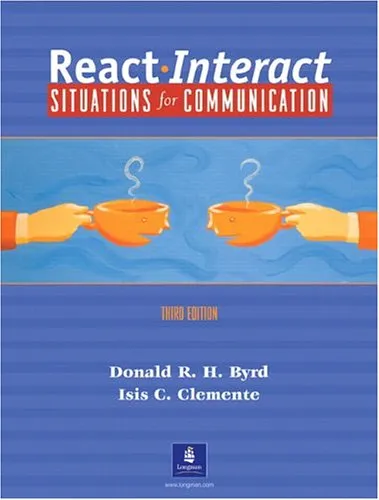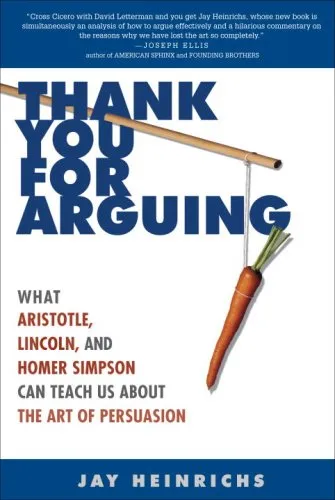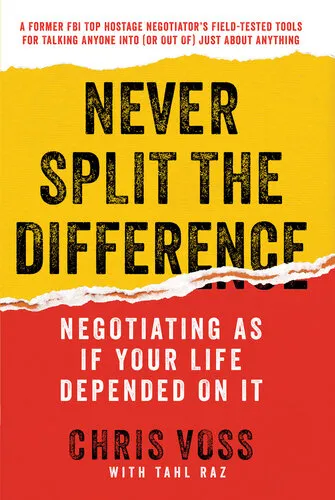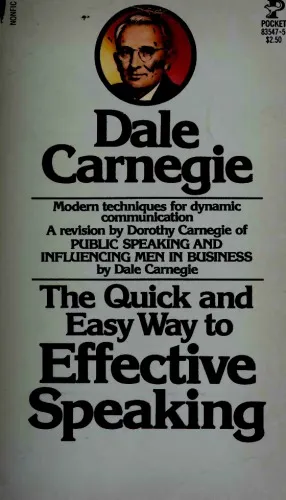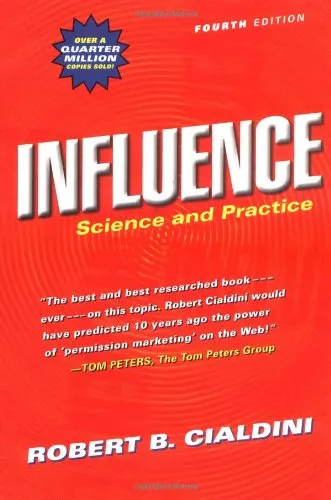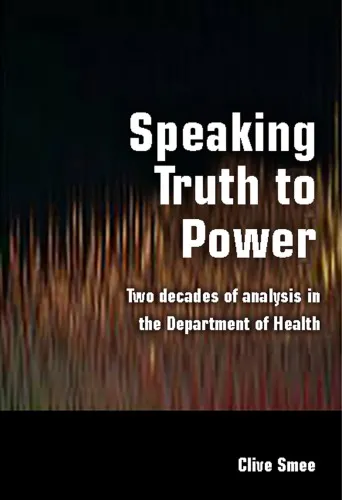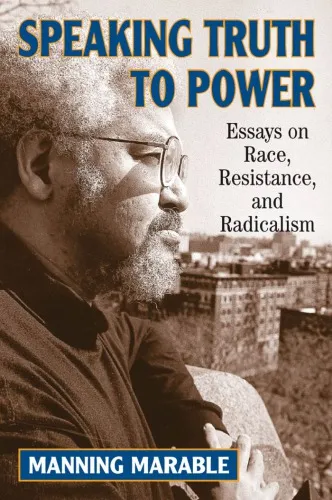Speaking Truth to Power: Religion, Caste and the Subaltern Question in India
4.5
بر اساس نظر کاربران

شما میتونید سوالاتتون در باره کتاب رو از هوش مصنوعیش بعد از ورود بپرسید
هر دانلود یا پرسش از هوش مصنوعی 2 امتیاز لازم دارد، برای بدست آوردن امتیاز رایگان، به صفحه ی راهنمای امتیازات سر بزنید و یک سری کار ارزشمند انجام بدینکتاب های مرتبط:
مقدمهای جامع درباره کتاب: Speaking Truth to Power: Religion, Caste and the Subaltern Question in India
کتاب Speaking Truth to Power: Religion, Caste and the Subaltern Question in India توسط مانو بهاگاوان و آنه فلدهاوس یکی از آثار برجستهای است که به بررسی دین، نظام کاست و مسائل سابآلترن در بافت اجتماعی، سیاسی و تاریخی هند میپردازد. این کتاب با رویکردی جامع و عمیق، عدالت اجتماعی را در ساختارهای نابرابر تحت تأثیر کاست و دین بررسی میکند و صدای جنبشهای مردمی را به گوش مخاطبان میرساند.
خلاصهای جامع از کتاب
این اثر نقدی جدی بر نظامهای اجتماعی نابرابر است که در طول قرنها در هند شکل گرفتهاند. نویسندگان با توجه به پیچیدگیهای جامعه هند، به تحلیل مبانی دین و کاست پرداخته و از لنز سابآلترن به مبارزات اقشار تحت ستم مینگرند. کتاب در پنج فصل اصلی تقسیم شده است که هر کدام با تأکید بر یکی از زوایای دین و کاست، نقشی حیاتی در فهم حقیقت مسائل اجتماعی بازی میکنند.
فصل اول به مبانی تاریخی نظام کاست میپردازد و ریشههای آن را در متون مذهبی و سنتهای تاریخی بررسی میکند. در فصل دوم، تأثیر دین بر تحکیم ساختارهای کاستی تحلیل میشود، و در فصل سوم، نویسندگان به تأثیرات جهانیشدن و نوگرایی بر مبارزات گروههای سابآلترن میپردازند. فصل چهارم بر جنبشهای مقاومت مردمی متمرکز است و در نهایت، فصل پنجم به تحلیل راهکارهای ممکن برای آیندهای عادلانهتر اشاره دارد.
در واقع، Speaking Truth to Power تنها کتابی آکادمیک نیست، بلکه صدایی است از درون مبارزاتی که بسیاری از اقشار حاشیهنشین برای پایان دادن به نابرابری تجربه کردهاند.
نکات کلیدی کتاب
- توضیح جامع درباره تأثیر دین در تقویت نظام کاست.
- مطالعه تأثیر نهضتهای سابآلترن بر دموکراسی و عدالت اجتماعی.
- بررسی رابطه تاریخی بین دین، سیاست و کاست در هند.
- ارائه دیدگاههایی برای تغییر ساختارهای اجتماعی نابرابر.
جملات معروف از کتاب
“To challenge the caste system is not merely to disrupt a social hierarchy—it is to fundamentally question the cultural fabric of a nation.”
“Religion and caste were never intended to be instruments of oppression; yet, they have been turned into tools to sustain inequality.”
“Freedom is not given; it is demanded by those oppressed, and justice follows only when truth is exposed.”
چرا این کتاب مهم است؟
Speaking Truth to Power نه تنها یک تحلیل انتقادی از جامعه هند ارائه میدهد، بلکه بر اهمیت گوش دادن به صداهای فراموششده تأکید دارد. این کتاب برای دانشجویان، پژوهشگران و هر کسی که به مسائل عدالت اجتماعی و سابآلترن علاقهمند است، حجمی بینظیر از اطلاعات و رویکردهای عملیاتی فراهم میکند. نویسندگان تلاش دارند تا مخاطبان را به بازاندیشی درباره ساختارهای اجتماعی ناعادلانه وادار کنند و به ترویج فضایی برای گفتگو و تغییر اجتماعی بپردازند.
اهمیت این اثر در ترکیب دیدگاههای تاریخی، مذهبی و سیاسی آن است که باعث میشود راهحلهای بسیاری برای مواجهه با چالشهای جامعه هند ارائه شود. به ویژه برای کسانی که به فهم گفتمانهای سابآلترن علاقه دارند، این کتاب اثری کلیدی به شمار میرود.
Introduction to "Speaking Truth to Power: Religion, Caste and the Subaltern Question in India"
"Speaking Truth to Power: Religion, Caste and the Subaltern Question in India" delves into the complex and often fraught layers of India's socio-political and cultural fabric. Authored by scholars Manu Bhagavan and Anne Feldhaus, this book explores the interplay of religion, caste, and marginalized voices within the framework of power and dominance. With a deep focus on India's historical and contemporary struggles, the book interrogates systems of oppression while highlighting the resilience of subaltern communities trying to reclaim their agency amidst a world of systemic inequalities.
The title itself, "Speaking Truth to Power," encapsulates the book's core mission: to uplift voiceless and suppressed communities by exposing the realities of inequality and inspiring transformative change. With a multidisciplinary approach that incorporates history, sociology, philosophy, and religious studies, it provides readers with not only an analytical lens but also a call to action. It is an essential read for academics, activists, and anyone concerned about justice and equity in modern society.
Detailed Summary of the Book
Throughout the book, Bhagavan and Feldhaus examine how India’s deep-seated structures of caste and religion intersect with power to create a framework of systemic exclusion. The authors revisit historical events, from colonial interventions to post-independence state policies, demonstrating how these processes often prioritized dominant interests over marginalized ones. Emerging issues like communal violence, caste-based discrimination, and religious exploitation are unpacked with both historical precision and contemporary relevance.
The book highlights the voices of the subaltern—those who have historically been relegated to the margins of society. Special emphasis is placed on Dalits, Adivasis, and other oppressed communities who struggle not only against material inequities but also cultural erasure. These narratives are explored through qualitative analyses, stories of defiance, and the works of thinkers and leaders who championed justice for the underserved, such as B.R. Ambedkar and Mahatma Phule.
Furthermore, the authors critically examine institutions of religion, looking at both their oppressive tendencies and their potential as tools for liberation. The intersection of faith and politics is dissected to reveal both the complicities of organized religion and the ways subaltern communities have used spirituality as a means of resistance.
Key Takeaways
- An in-depth understanding of how caste and religion function as systems of power in India.
- Insights into the lived realities of subaltern communities and their ongoing struggles for justice and equality.
- Exploration of the role of both historical events and modern policies in perpetuating structural inequities.
- Frameworks for analyzing how marginalized voices challenge and resist systemic oppression.
- A critical perspective on the potential for religion and social movements to serve as tools for emancipation.
Famous Quotes from the Book
"To speak truth to power is not just an act of defiance; it is a reclamation of dignity by those who have been silenced."
"Faith becomes a weapon of oppression when wielded by the powerful, but it transforms into a sanctuary of hope when embraced by the oppressed."
"True liberation is only possible when the subaltern is not just seen, but heard and understood."
Why This Book Matters
In today's polarized world, "Speaking Truth to Power" reminds us of the importance of equity and social justice. It sheds light on the fault lines of caste and religion that continue to define Indian politics and society, urging readers to confront uncomfortable truths. By highlighting subaltern voices and their resilience, the book serves as a clarion call for inclusivity, reform, and moral courage.
This book matters because it bridges academic rigor with a profound empathy for marginalized communities. It challenges readers to unlearn biases, rethink power dynamics, and reconsider their own roles in perpetuating—or dismantling—systems of oppression. Whether you're a student, a policymaker, or a concerned global citizen, the insights offered by Bhagavan and Feldhaus are bound to leave a lasting impact on your perspective and actions.
دانلود رایگان مستقیم
شما میتونید سوالاتتون در باره کتاب رو از هوش مصنوعیش بعد از ورود بپرسید
دسترسی به کتابها از طریق پلتفرمهای قانونی و کتابخانههای عمومی نه تنها از حقوق نویسندگان و ناشران حمایت میکند، بلکه به پایداری فرهنگ کتابخوانی نیز کمک میرساند. پیش از دانلود، لحظهای به بررسی این گزینهها فکر کنید.
این کتاب رو در پلتفرم های دیگه ببینید
WorldCat به شما کمک میکنه تا کتاب ها رو در کتابخانه های سراسر دنیا پیدا کنید
امتیازها، نظرات تخصصی و صحبت ها درباره کتاب را در Goodreads ببینید
کتابهای کمیاب یا دست دوم را در AbeBooks پیدا کنید و بخرید
1433
بازدید4.5
امتیاز0
نظر98%
رضایتنظرات:
4.5
بر اساس 0 نظر کاربران
Questions & Answers
Ask questions about this book or help others by answering
No questions yet. Be the first to ask!
